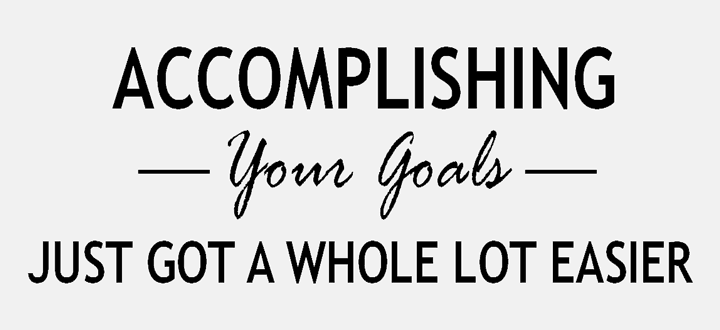The whole point of setting a goal is to be able to accomplish it. Understanding why goal setting doesn’t work for those that it doesn’t work for can give us insights into how to make goal setting work. In other words the journey from goal setting to goal accomplishment may be easier if we understand what stops people from achieving the goals they have set. That is exactly what we will focus on in this post.
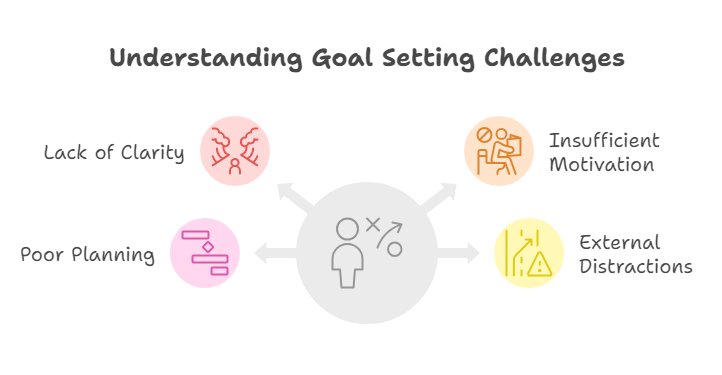
There are a lot of people who complain that goal setting doesn’t work for us. One of my friend recently told me:

Even after setting my goals and creating the plan of action, I’m just not able to accomplish them goals. And I know that the problem is that I am not really able to apply the plans I have made.
I should be able to apply them. The plans are very realistic, structured and easy to understand. Yet I am just not able to. Maybe it’s because of laziness that I procrastinate. It is so frustrating but I can’t do anything about it.
This is the story of not just my friend but many others. Because they are not able to take action, they say goal setting doesn’t work.
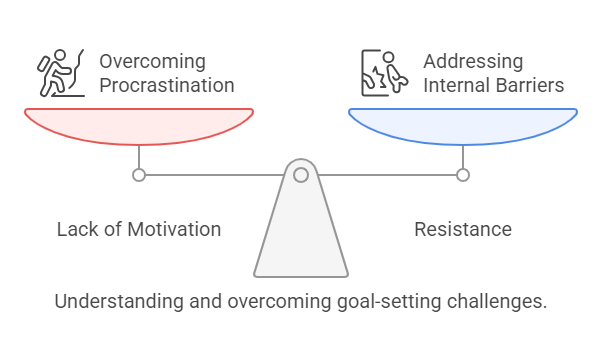
Which brings us to the important question, why people not are able to take actions that are on their plans?
People do not apply the plans they have generally because of one of the following two reasons:
- Lack of motivation
- Resistance
Why goal setting doesn’t work: Lack of Motivation

As far as lack of motivation is concerned, it is generally a result of:
- Lack of interest
- A feeling that the returns are not as much as the efforts
Why goal setting doesn’t work: Resistance
Resistance, on the other hand is generally a result of the feeling (conscious or unconscious) that the changes required to achieve the goal or the changes which will be a result of achieving the goal are not ecological.
The word “Ecology” refers to the relationship between an organism and his environment, i.e. how a change in the organism (behaviour of the person) affects his overall environment (different aspects of his life).
For example:
If I choose to grow my business and for that I have to spend more time working (change in my behaviour), it would mean I may have less time to spend with my family (impact on other areas of my life). As a result my wife and children may feel bad about getting less time or attention. This may lead to problems in my relationships (undesirable outcome).
Thus a change in me in one area creates a ripple effect in other areas of my life and in the lives of others around me. If these ripple effects are also positive, than my action is ecological, but if the ripple effect leads to undesirable outcomes, than the action is not ecological, and so the subconscious may resist these kind of actions or goals.
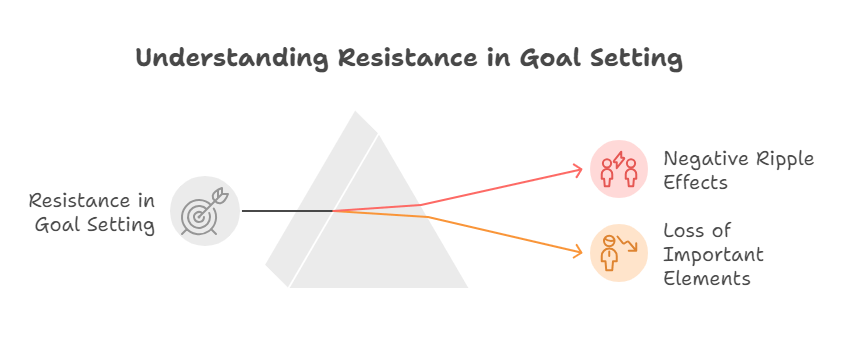
In short, a change is not ecological when:
- It would lead to problems in certain areas of my life or the lives of people around me. Above mentioned example represents the same.
- It would require me to let go of something or someone important to me. For example if I like getting attention and getting a lot of attention from people around me because of some problems that I’m facing, than I may resist resolving the problem because resolution of problem may lead to reduction in attention that I’m getting.
Making Goal Setting work:
Now that we know the reasons behind why goal setting doesn’t work let us talk about the best ways of dealing with these reasons.
Lack of motivation:
- To deal with lack of interest, as far as possible, create your goals and plans around things and the kind of work that interests you. If the activity itself is not interesting, connect it to an interesting outcome or create a sense of urgency. You can use the NLP Anchoring Process to associate excitement with the different tasks on the action plan.
- To make the efforts and rewards ratio more favourable, consider not only the main and the obvious benefits of achieving the outcome but also all the other positive changes which will be a direct and, more importantly indirect result of your accomplishing your goals.
Example, a better job will not only mean more income, it will also mean ability to take family out for vacations, resources to buy gifts for those who are important, improved relationships, better health, maybe more freedom in terms of work timings which could lead to finding time to follow your passion and to do things that interests you.
Resistance:
When setting goals and creating an action plan, do an ecology check.
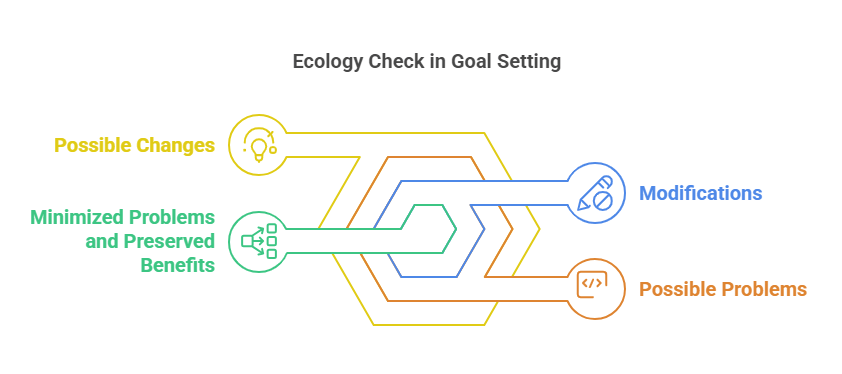
- Consider all the possible changes in your life as a result of
- The application of each activity that is a part of the plan and
- Accomplishing your goals
- Make a note of
- Any possible problems that the above would lead to and
- Of any existing benefit that you will need to let go off
as a result of applying the plan or accomplishing the goal.
- Modify the goal and the plan in a way that you can:
- Minimise the problems and preserve the existing benefits.
- If a problem is inevitable, or you must let go of a benefit due to some important activity, create plans to deal with the expected problems and preserve the existing benefits.
We recommend using the SOFT SEA™ coaching model for setting goals. It is designed in a way that addresses all the reasons behind why goal setting doesn’t work. Also various techniques from Hypnosis, NLP and Metaphors can really assist you in making the process of goal setting and accomplishment much easier and more natural. You can always consult our specialists by calling us on +91-8080-2084-73 if you are looking for a more focused one to one coaching session.
If you are a coach or looking to become a coach, I would highly recommend you check out the Cognitive Hypnotic Coaching™ Certification Program, which focuses on developing advanced coaching competencies based on integrating the cutting edge techniques and models from Hypnosis, Neuro Linguistic Programming, Mindfulness and Metaphors.
